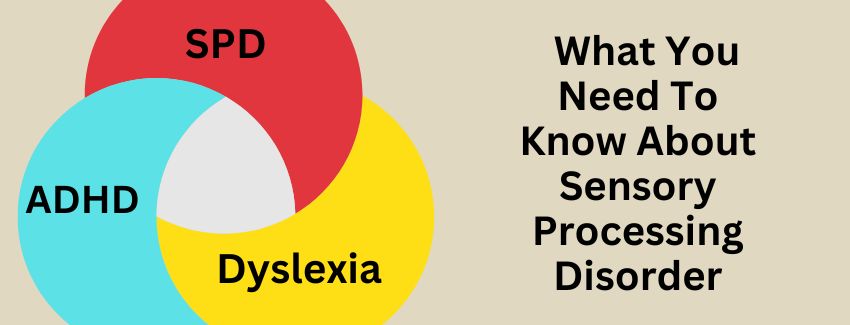Sensory Processing Disorder: What you need to know.
Apr 16, 2024

Does your child:
- Have difficulty sitting still in class for a 30-minute lesson?
- Have meltdowns when having to go to an assembly in a loud gym?
- Refuse to wear certain clothes?
- Bump into things or people when walking the halls?
- Get upset during lunch with the smell of a peer’s lunch?
- Get distracted by a visually stimulating classroom?
- Have difficulty with bladder control?
If you answered yes to some of these questions then your child may have a sensory processing disorder (SPD). Sensory processing is the ability of the brain to take in, organize, and interpret information from our senses. Our senses give us information about our bodies and the environment around us. Sensory input includes touch, movement, body awareness, internal body sensations, sight, sound, taste, and smell. The process of sensory input happens every second of every day. For most people, effective sensory processing occurs automatically. For others, the process is inefficient - demanding effort and attention.
An infant experiences sensory information but is unable to attach meaning to this information. Through play, the child begins to attach meaning to the sensations they are receiving. They respond by producing a goal-directed and purposeful adaptive response. An adaptive response is an action taken in response to a sensation. Each time a baby has an adaptive response, their nervous system stores the knowledge of that experience and uses it later to organize different sensory experiences. Once the senses are organized, the child begins to develop reflex maturation, understanding where one’s body is in space, balance, bilateral integration (use of both sides of body), eye-hand coordination, motor planning, hearing, and speaking skills. A child is usually well integrated by 8-10 years, but sensory processing continues to be refined throughout their lives.
A 2009 study found that 1 in 6 children have sensory issues (Ben-Sasson et al., 2009). Sensory processing is not a learning disability, but it can make it hard for students to be successful in school. It is frequently comorbid with ADHD. Although one can have SPD without ADHD and ADHD without SPD, about 40% of people with ADHD have SPD.
The Pyramid of Learning below shows us how important the sensory system is and that it is the foundation for many areas of development. If we do not have a strong foundation, we cannot expect the top of the pyramid to be stable.

Sensory processing disorder can manifest itself in many different ways. Students with it can be over responsive or under responsive to sensory input, crave sensory input, demonstrate poor motor/motor planning skills, or have difficulty interpreting sensory information. When a student has SPD, it often results in maladaptive behavior, like poor attention, emotional flare-ups, poor learning development, and/or poor motor skills. Some students need sensory integration therapy with an occupational therapist, and others will benefit from accommodations made in the classroom.
At Horizon Academy, students with SPD benefit from various accommodations in the classroom. For example, students may sit on inflated cushions or on a wiggle stool to help them be more aware of where they are in space. We use weighted lap buddies or stretch bands around the legs of their chairs to help increase body awareness so they can better focus on their learning. Students are also allowed to use fidgets or chew gum to give them physical work to regulate their sensory system. Others may wear noise-canceling headphones or have a certain seating placement away from more visually active parts of the room. Our teachers are experienced at being aware and making accommodations to the classroom and giving sensory breaks to students when they need the input to help regulate themselves and be able to learn. If a faculty member sees a student needing more than just classroom accommodation, they refer them to the occupational therapist for an evaluation.
In conclusion, SPD is relatively common and often co-occurs with ADHD. Many of the accommodations used in classrooms at Horizon Academy benefit kids with SPD. Horizon Academy empowers students diagnosed with dyslexia and other language-based learning disabilities to become effective learners and confident self-advocates. ADHD often co-occurs with dyslexia as well as SPD. For more information about SPD, please visit https://sensoryhealth.org/ or https://www.understood.org/articles/en/understanding-sensory-processing-issues
Jackie Thomas, MOT, OTR/L
Occupational Therapist
Horizon Academy
